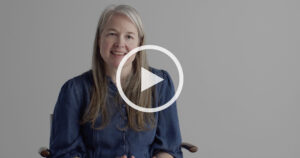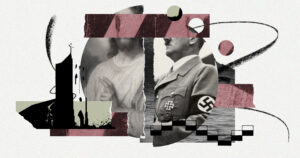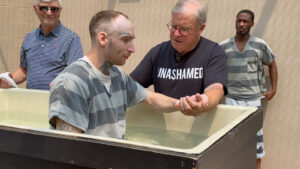When Did Hitler Substitute Jesus because the Reference Level for Good and Evil?

Ethical Revolution—from Jesus to Hitler
Typically we guarantee ourselves that others endure as a result of they weren’t cautious or considerate. Within the early years of the fashionable state of Israel, many Holocaust survivors carried a stigma. The Jews who spent the Thirties and ’40s within the Center East couldn’t perceive how six million may have died with out extra resistance. Certainly the victims ought to have accomplished extra, fought again more durable. They need to have identified! “It’s not God’s fault,” some stated. “The Jewish leaders had been accountable.”
The sheer scale of the Holocaust, nonetheless, overwhelms any such protection mechanisms. Efforts to struggle again—such because the 1943 rebellion within the Warsaw ghetto—failed in opposition to decided Nazi brutality. There’s no option to clarify away the scope of this horror by in some way blaming the victims.
Once I educate college students who’re coaching to steer church buildings, I ask them to write down a sermon that comes with what they imagine is probably the most highly effective objection to Christianity. For me, it’s the silence of God within the face of struggling, particularly the struggling of kids who appear to have accomplished nothing mistaken. Typically after I’m speaking with somebody who doesn’t share my Christian religion, I’ll even ask her or him to think about this query. It’s not simply that almost all of us can relate to asking for assist and listening to no response. It’s that this query of God’s silence—particularly within the Holocaust—has precipitated nothing lower than an ethical revolution in Western civilization. Historian Alec Ryrie observes that World Conflict II uncovered Christianity as setting the mistaken priorities: “It now appeared plain that cruelty, discrimination and homicide had been evil in a method that fornication, blasphemy and impiety weren’t.”1
Written with grace and empathy, this concise booklet solutions questions and doubts for many who battle to belief God’s justice and goodness within the face of evil and struggling.
In different phrases, the Holocaust remodeled our requirements for evil. Within the shadow of Auschwitz, how may anybody be anxious about variations between Christian denominations? Why ought to anybody care if two adults have interaction in consensual intercourse? A little bit cursing in God’s identify can’t be an enormous deal when he didn’t hassle to cease tens of millions of Jews from marching into the gasoline chambers.
Earlier than the conflict, Jesus Christ was probably the most potent ethical determine in Western tradition. You don’t need to look laborious for proof once you journey round Europe at the moment. Simply take within the medieval artwork and go to the traditional church buildings. On the town squares the place bells tolled on Sunday mornings, even non-Christians measured themselves in keeping with Jesus’s instance of affection. He set the ethical normal in his sinless life.
Nonetheless, Ryrie argues, the overwhelming tragedy of the conflict displaced Jesus because the mounted reference level for good and evil.2 Right now the bells nonetheless toll, however the pews are normally empty. Artwork contains Jesus solely to be ironic. Throughout the West at the moment, you may move almost every single day besides Christmas in relative ease and luxury with out giving thought to Jesus.
So who changed Jesus as the brand new ethical normal?
Adolf Hitler.
“It’s as monstrous to reward him as it will as soon as have been to disparage Jesus,” Ryrie writes. “Whereas Christian imagery, crosses and crucifixes have misplaced a lot of their efficiency in our tradition, there is no such thing as a visceral picture which now packs as visceral an emotional punch as a swastika.”3
If Christians marched down your road behind a cross, you would possibly shrug them off as eccentrics. But when Nazis marched down your road behind a swastika, you’ll really feel their presence as an existential risk to you, your loved ones, and your complete public order. Or contemplate a road preacher studying Scripture and proclaiming excellent news of the dominion of God. He’ll most likely be ignored. Now contemplate you’re strolling the traditional streets of a venerable European metropolis and also you see a younger man wearing khaki from head to toe, with a purple arm band. He’s studying out loud from Mein Kampf. He gained’t final lengthy earlier than violent opposition types to silence his hateful phrases.
On this ethical revolution, few would fake to be happy with every thing they’ve stated and accomplished. You don’t fake to be good. However no less than you realize this: You wouldn’t put up with Hitler. You wouldn’t be silent in your protest. Jew and Gentile alike, we all know that we have to communicate up in opposition to such evil as a result of we will’t overlook the Holocaust.
Drawback is, how have you learnt who’s Hitler at the moment with out seeing a swastika?
Grand Inquisitor—Making Ourselves the Normal
Once I learn Elie Wiesel on the Holocaust for the primary time, his skeptical questions sounded acquainted. I knew I’d heard them earlier than—however not about God’s silence within the Holocaust. The truth is, the accusations had been delivered by an unforgettable character within the nineteenth-century novel The Brothers Karamazov, a traditional written by famend Christian creator Fyodor Dostoevsky.4
In e book 5 of the novel, Ivan Karamazov argues along with his youthful brother, Alyosha, about God. Like Wiesel, Ivan is horrified by the struggling of harmless kids. Like Wiesel, Ivan protests in opposition to God for permitting injustice.
Right here’s the riveting passage:
And if the struggling of kids goes to make up the sum of struggling wanted to purchase fact, then I assert beforehand that the entire of fact is just not value such a worth. . . . Think about that you just your self are constructing the edifice of human future with the thing of constructing individuals pleased within the finale, of giving them peace and relaxation eventually, however for that it’s essential to inevitably and unavoidably torture only one tiny creature, that very same little one who was beating her chest together with her little fist, and lift your edifice on the inspiration of her unrequited tears—would you conform to be the architect of such circumstances?5
Dostoevsky calls this chapter “Rise up.” No surprise. Ivan says, “It’s not that I don’t settle for God, Alyosha, I simply most respectfully return him the ticket.”6 That’s the well-known line. By no means has a extra highly effective argument in opposition to God been mustered than this: “I imagine in him. I simply hate him.” Turns on the market could also be one thing worse than God’s silence. It’s God making an attempt to supply an evidence we reject as unjust.
Within the subsequent chapter, with Ivan’s poem “The Grand Inquisitor,” Dostoevsky places Jesus on the literal witness stand. However the trial ends in an surprising method.
When the Inquisitor fell silent, he waited a while for his prisoner to answer. His silence weighed on him. He had seen how the captive listened to him all of the whereas intently and calmly, wanting him straight within the eye, and apparently not wishing to contradict something. The previous man would have favored him to say one thing, even one thing bitter, horrible. However immediately he approaches the previous man in silence and gently kisses him on his cold, ninety-year-old lips. That’s the complete reply. The previous man shudders.7
Silence, and a kiss.
Is that one of the best Jesus can do? A kiss?
Why gained’t God communicate up and defend himself? Perhaps it’s as a result of even when he did, we wouldn’t hear. It doesn’t matter what he stated, we’d nonetheless declare him responsible.
That’s why Fyodor Dostoevsky let Ivan put Jesus on trial. He was warning us that after we decide God, we don’t substitute him with a superior morality. As an alternative, something goes. We make the principles. However nobody’s in cost. In Dostoevsky’s story, Ivan learns his lesson the laborious method. With all of his ranting in opposition to God, somebody takes Ivan severely and kills his father. When the killer palms Ivan cash stolen from his murdered father, the implications of “something goes” in a world with out God start to crush Ivan.
With out figuring out it, Dostoevsky warned us about how the 20th century would unfold. It’s a destiny worse than God’s silence. It’s a life the place we not get indignant at God’s silence. It’s a world the place God’s voice is a forgotten echo.
It’s the Second World Conflict on the Japanese Entrance.
The place Is Evil Positioned?
I caught a glimpse of that world by the eyes of one other Russian author, Vasily Grossman, and his epic novel Life and Destiny. A Jewish journalist within the Soviet Union throughout World Conflict II, Grossman was one of many first writers to watch a Nazi loss of life camp when Treblinka was liberated in jap Poland.
I used to be overcome with emotion after I learn one of many novel’s scenes the place a younger little one is separated from his dad and mom throughout the choice for the Treblinka gasoline chambers. I can hardly write concerning the story with out weeping. A Jewish physician may have averted rapid loss of life as a consequence of her occupation. As an alternative, she elected to carry the panicked little one’s palms by the horrifying course of, all the way in which till loss of life. The childless girl had one closing thought earlier than she perished: I’ve develop into a mom.8
Life and Destiny depicts the evils of Nazism like no different work. I’ve by no means seen such a vivid description of the banality of evil in constructing and working a gasoline chamber. However Grossman didn’t depict the Soviets as paragons of advantage simply because they weren’t Nazis. Regardless of Grossman’s acclaim as a author and battlefield witness, Life and Destiny virtually didn’t survive the Soviet censors. Grossman refused to valorize Stalin for combating in opposition to Hitler. So the Soviets wished to close Grossman up, simply as they’d tried to silence God by state-mandated atheism throughout Russia and its neighbors.
Grossman, nonetheless, retained an goal normal of evil that allowed him to evaluate either side. He helped the world to see that communism and fascism weren’t a lot two ends of a left-right spectrum as mirror pictures of totalitarian evil. They may have been mortal enemies in ideology and conflict. However in morality, they had been companions in crime. They shared a typical purpose of silencing God’s voice of judgment in opposition to their plans for world subjugation.
Grossman died in 1964, almost a decade earlier than Aleksandr Solzhenitsyn printed his Gulag Archipelago concerning the evils of the Soviet state. Solzhenitsyn’s surprising account of Soviet jail camps explains why “don’t be a Nazi” morality hasn’t stopped evil. “I’m not as unhealthy as Hitler” is just too low a bar for the justice we count on when somebody robs our dwelling or rapes our neighbor. It’s too low a bar when harmless kids are at stake. We’re proper to cry out for larger justice.
Anti-Nazi morality additionally fails as a result of it shifts evil from one thing inside us to one thing on the market amongst our enemies. It leads us to sanctify ourselves and demonize our enemies, transferring us from defendant to evaluate, as if we’ve develop into righteous merely by advantage of being born after Hitler’s loss of life. Solzhenitsyn, as a Christian, noticed evil not simply as one thing “on the market” but additionally “in right here.” He famously noticed, “The road separating good and evil passes not by states, nor between lessons, nor between political events both—however proper by each human coronary heart.”9
I watched the 2022 Beijing Winter Olympics with my kids. They delighted within the brave, beautiful performances on ice and snow. Through the closing ceremonies, my older son requested for a crash course in geopolitics. He noticed Russian president Vladimir Putin standing because the honored visitor of Chinese language president Xi Jinping. I defined that quickly many Ukrainian households can be combating for his or her lives and houses in opposition to invaders from Putin’s Russia. Inside days Putin launched the biggest land conflict in Europe for the reason that finish of World Conflict II.
Aleksandr Solzhenitsyn wouldn’t be fooled by Vladimir Putin’s pretensions as defender of the Christian religion in our day. Putin justified his invasion of Ukraine—dwelling of Grossman and his mom, who died when the Nazis massacred the Jews of Berdychiv in 1941—as “deNazification.” The rockets Putin has despatched raining down on condo complexes throughout Ukraine ought to remind us: all method of evil begins after we underestimate the human penchant for self-deception.
We shouldn’t miss the purpose. We’d like an goal normal of morality larger than “not Hitler.” After we externalize evil to an out-group, we deceive ourselves in self-righteousness. After we don’t hearken to God, demagogues emerge to talk as if they’re gods. Dictators from Hitler to Putin promise straightforward solutions to troublesome questions on what’s mistaken with the world—The individuals we already hate are guilty!—they usually promise a godlike potential to enact justice. They construct a brand new kingdom by shedding their enemies’ blood.
Perhaps the issue isn’t the silence of God. Perhaps we’re simply not listening. Or perhaps we desire the sound of our personal voices.
Notes:
- Alec Ryrie, Unbelievers: An Emotional Historical past of Doubt (Cambridge, MA: Belknap, 2019), 202.
- Ryrie, Unbelievers, 203.
- Ryrie, Unbelievers, 203.
- I owe a lot of what I learn about Dostoevsky and the issue of evil to my Northwestern College professor Gary Saul Morson. You may be taught his perspective within the e book Surprise Confronts Certainty: Russian Writers on the Timeless Questions and Why Their Solutions Matter (Cambridge, MA: Belknap, 2023).
- Fyodor Dostoevsky, The Brothers Karamazov, bicentennial ed., trans. Richard Pevear and Larissa Volokhonsky (New York: Picador, 1990), 260–61.
- Dostoevsky, The Brothers Karamazov, 261.
- Dostoevsky, The Brothers Karamazov, 279.
- Vasily Grossman, Life and Destiny, trans. Robert Chandler (New York: Harper & Row, 1985), 554.
- Aleksandr Solzhenitsyn, The Gulag Archipelago, 1918–1956: An Experiment in Literary Investigation, vol. 2, pts. 3–4, trans. Thomas P. Whitney (New York: Harper & Row, 1975), 615.
This text is tailored from The place Is God in a World with So A lot Evil? by Collin Hansen.
Associated Articles
How Can a World Stuffed with Evil and Struggling Be a A part of God’s Plan?
Can this fallen, brutal, merciless world actually be God’s plan? What’s God’s reply to our many, fervent prayers?
How Can God Be Each Righteous and Sovereign over Evil?
All the pieces that occurs unfolds in keeping with God’s plan, with out exception. However If God deliberate all issues that ever come to move, how is he not additionally the creator of sin?
The place Is God in a World with So A lot Evil?
On this video, Collin Hansen provides encouragement for many who battle to belief God’s justice and goodness within the face of evil and struggling.
Podcast: How Can We Belief a God Who Permits So A lot Evil? (Collin Hansen)
Collin Hansen addresses questions on the issue of evil and the place God is within the face of great struggling and loss of life.








